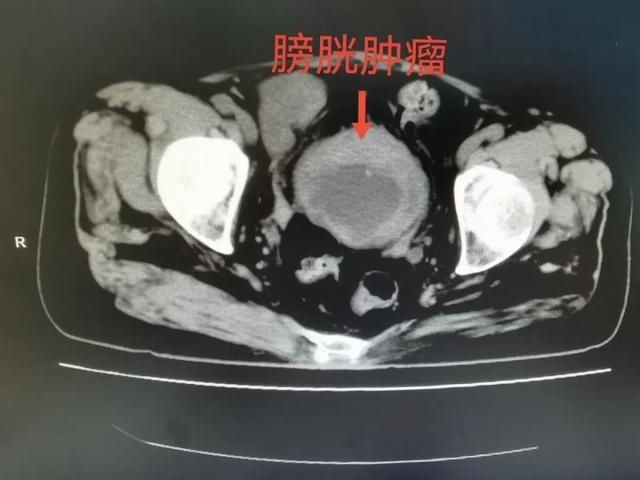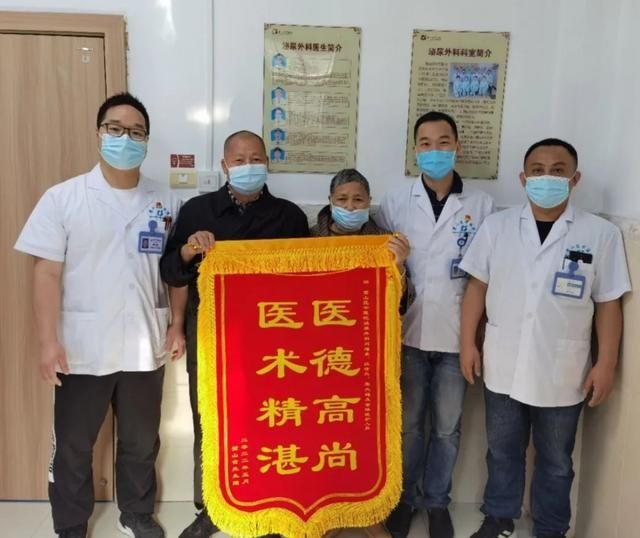Recently, a patient with recurrent painless gross hematuria was admitted to the Department of Urology, Bishan Hospital of Traditional Chinese Medicine. After cystoscopy and tissue biopsy, the diagnosis was: bladder invasive high-grade urothelial carcinoma. The urology team successfully performed laparoscopic radical cystectomy for the patient through careful preoperative preparation and superb surgical skills, which relieved the patient’s pain.

▲Check the film
In mid-April, Aunt Luo from Bishan District suffered from repeated hematuria for 1 year Most of them went to the Urology Department of the District Hospital of Traditional Chinese Medicine. One month ago, they underwent cystoscopy and biopsy in a foreign hospital and were diagnosed with “bladder cancer”. Radical cystectomy was required. This operation is the “ceiling” of urological surgery and is very difficult. , The risk is high, because the patient is older and has many underlying diseases, and no surgical treatment is performed. After receiving the consultation, Director Liu Xudong communicated with the patients and their families patiently and meticulously about their condition for many times. The team of the department discussed the treatment plan. Due to the frequent occurrence of bladder tumors, the scope is wide, and the tumor infiltrates the grassroots level. effective method.
After sufficient preoperative preparation and the careful cooperation of the Department of Anesthesiology, the urology expert team used superb laparoscopic techniques to perform laparoscopic radical cystectomy for Aunt Luo. The vital signs were stable and the operation was a complete success. Postoperative pathological findings: invasive high-grade urothelial carcinoma, the cancer tissue invaded the full thickness of the bladder wall.

▲Aunt Luo’s family sent a pennant
Under the careful care of all the medical staff in the Urology Department , Aunt Luo recovered well after surgery and was discharged from the hospital. In order to express their gratitude and respect to the medical and nursing team, Aunt Luo’s family also made a special trip to send a pennant.

▲Department study
Introduced by attending physician Duan Shiyuan: Bladder cancer is the most common malignant tumor of the urinary system One of the common types of tumors: urothelial cell carcinoma, squamous cell carcinoma, adenocarcinoma, metastatic carcinoma, small cell carcinoma, carcinosarcoma, etc. Among them, bladder urothelial carcinoma is the most common, accounting for more than 90% of all pathological types. When bladder cancer is discovered, most of them are in the early stage, with intermittent and painless whole-course gross hematuria as the first symptom. There are also bladder irritation signs such as frequent urination, urgency and dysuria. The tumor was discovered incidentally during a routine examination.
For non-basal invasive bladder cancer, transurethral resection of bladder tumor is the main treatment method. For primary invasive bladder cancer, radical cystectomy is recommended, and it can be cured by surgery for 5 years. The disease-free survival rate exceeds 80%.
Hematuria should not be ignored. Early detection, early diagnosis and treatment, and early treatment can lead to better treatment effects and prognosis as much as possible. (Text/Photo/Song Taichao · Urology)